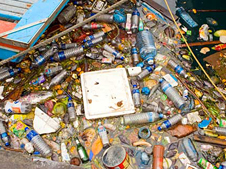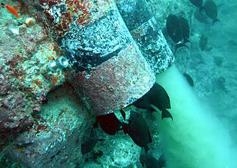UNESCO World Press Freedom Day began with the news that the Maldives index has improved slightly following its 53 point leap last year, an achievement attributed to the new Constitution.
The Maldives is now ranked 102, equal place with Tanzina and Albania and marginally ahead of Turkey and Indonesia. The Maldives is still categorised as ‘partly free’, the reasons for which should be revealed when the country report is released in the coming days.
The rise came despite recent gang violence directed at media organisations and an attempt by police to block radio news coverage following emphatic protests outside MNDF headquarters and the President’s residence in January, drawing concern from the Maldives Journalist Association (MJA) and a number of media outlets.
Worldwide the index declined across almost every region in the world, for the eighth consecutive year, with one in six people now living in an environment without a free press. The only region to improve was Asia-Pacific, with significant strides in Bangladesh and Bhutan.
According to Freedom House, the international body that runs the index, countries are assessed on the developments of each calendar year, including the legal environment in which media operate, political influences and economic pressures.
Meanwhile, the two-day South Asia Regional Consultation on Freedom of Information: The Right to Know was launched in Holiday Inn this morning, by Minister for Tourism, Arts and Culture Dr Ali Sawad.
Delegates from the media, government and civil society organisations in countries including Bhutan, India, Pakistan, Nepal and Sri Lanka met discuss the development and implementation of freedom of information laws as a means of combating corruption and enshrining free press as a fourth estate.
In a video address, UNESCO Director General Irina Bokova noted that “every time we turn on the TV, turn on radio or go on the internet, the quality of what we hear depends on media having acess to accurate and up to date information.”
“The obstacles in the way of our right to know take many forms,” she said, “from lack of resources, to lack of infrastructure to deliberate obstruction. Far too many journalists suffer harassment, intimidation, and physical assault – all in a day’s work.”
Bokova called on government and civil society “to promote freedom of information all over the world.”
Many of the sessions on the first day of the conference focused around promoting freedom of information laws at a state level, however media representatives from countries including Bangladesh and Bhutan noted that even where freedom of information laws were available, they were not always used effectively by journalists.
Dehli Bureau Chief of The Hindu and keynote speaker Siddharth Varadarajan implied that freedom of information laws were less critical to freedom of the press “than our inability as journalists to transcend market forces and commercial considerations… and tendency to report trivia.”
Newspapers in India regularly sold “campaign coverage packages” to politicians come election season, he noted, a practice which “seriously compromises citizens’ trust in media content.”
A further consequence of such practices, he added, was a sense of dissatisfaction among journalists “at our inability to use the power at our disposal.”
“We have a responsiblity to be tougher, harder, and to call a spade a spade,” he said.
In his address, Dr Sawad similarly emphasised the responsibilities that came with the freedom of the press.
“With every right comes responsibilities,” Dr Sawad said. “In a free nation with free expression, the media must not forget its obligations to citizens to report fairly and accurately.”
The Maldives, he said, “has a very young free media, coming out of a culture where it was state owned and regulated. We have the challenge of dispelling the myth that the state represents media.”
Dr Sawad explained since its election, the current government “has committed to a step-by-step dismantling of the Department of Information, formerly the ministry of Information, to replace it with a stronger private media.”
State broadcasters Television Maldives (TVM) and radio station Voice of Maldives (VoM) had been placed under the new Maldivies National Broadcasting Corporation (MNBC), “a separate corporate entity with its own board and budget.”
A key challenge for the fledgling private media however was capacity building and training of its journalists, he explained.
“Private media has a very hard task. A lot of you are just past high school, with a keen professional interest in the field. But as we settle down and lay the foundations of democracy, we have to have to have the capacity to deliver democracy. You cannot give that objective to someone without the capacity to deliver it – the government has delivered democracy, but it has yet to be delivered to the people. ”
“Before the government lies the task of training, educating and strengthening the free press. As we celebrate UNESCO World Press Freedom Day, I call on the media to take up the challenge to deliver democracy with a sense of responsibility.”
The sessions continue tomorrow when President Mohamed Nasheed will launch the Journalist of the Year Award and Sukumar Muralidharan from the South Asian Chapter of the International Federation of Journalists will launch the South Asia Press Freedom Report.

